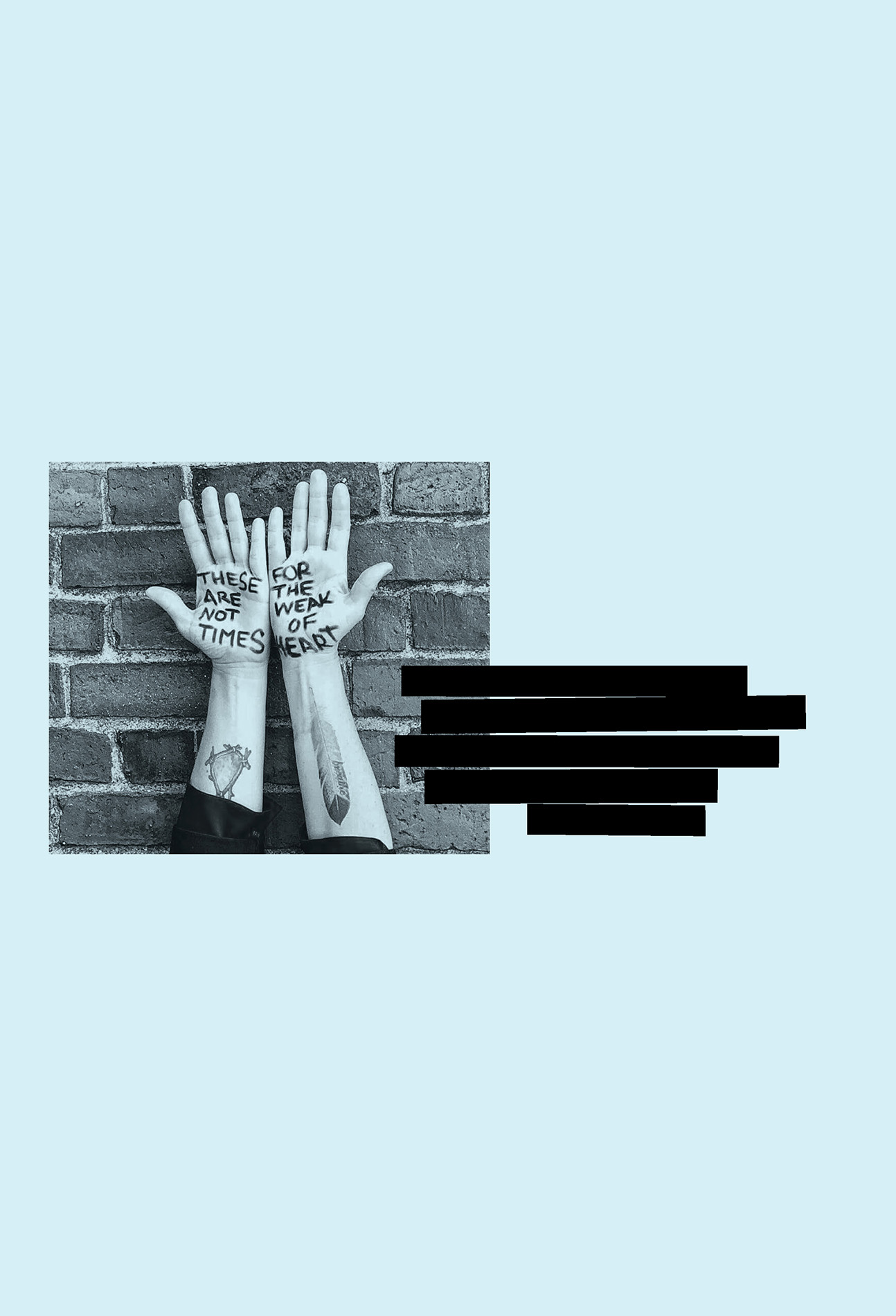
FOREWORD
It is May 2020 in New York City as I write this, and while I am sitting in a small room in Brooklyn just across the river from the Broadhurst Theatre, I cannot go there right now. Nobody can. On March 12, the theater, along with every other theater on Broadway, closed its doors due to the coronavirus pandemic, leaving only a lone ghost light burning at the center of the stage. The marquee for Jagged Little Pill is still up, as are the show’s sets and the costume racks in the dressing rooms.
Somewhere, in the wings, the Healy family Christmas tree is gathering dust, waiting for the day that the show can go on. Hopefully, by the time you read this, Broadway will have come roaring back—or at least it will have safely tiptoed back at sixty percent capacity—and it will again be possible to hear Lauren Patten sing “You Oughta Know” with such ferocious urgency
that it makes you want to stand up in your seat, or to hear Celia Rose Gooding turn “Ironic” into an inside joke about poetic license and grammatical errors. For now, even while separated, the cast is trying to stick together: just this week, the company of Jagged Little Pill and Alanis Morissette got together on Zoom to perform several numbers from the show to benefit The Actor’s Fund, with Morissette ending the night by singing a slow rendition of “Hand in My Pocket.” Watching
Morissette perform that song, at such an anxious and unpredictable time, I realized that it had taken on a new resonance. It is hard to say if everything is going to be fine, fine, fine right now. But in a way, that has always been the point. Morissette wrote that song at only nineteen years old, speaking to the swirling uncertainty she felt in her own life as part of a generation that had been labeled as listless slackers. “Hand in My Pocket” is a song about feeling everything and nothing at
once, and moving through the day anyway. It’s about allowing one hand to worry while the other grips the wheel. It feels oddly prescient for this time, when many of us are just trying to find some sense of equilibrium to get through the day.
Equilibrium—finding it, maintaining it—was always a central theme of Jagged Little Pill, the album. You hear it in songs like “You Learn,” which recommends swerving between risks and mistakes so that you can ultimately find a wiser place to land,
or in “Perfect,” which is about sloughing off the expectations of your parents in order to formulate an internal compass of your own. It is always bizarre to me that even twenty-five years after its release, people think of Jagged Little Pill as an angry record, a shrill yodel from an ex-girlfriend out for revenge. There is anger on the record, to be sure; listen to “Right Through You” and you’ll hear Morissette seething at the predatory record executives who took advantage of her when
she was a teenage pop star in Canada. Or listen to “Forgiven,” a lament about the hypocrisies of the Catholic church and the ways in which Morissette felt that organized religion taught her to keep her mouth shut. But rage is just one of the many emotions that flood the album; if anything, it is a work of emotional maximalism. All the feelings on Jagged Little Pill are
Big Feelings. There’s gushy infatuation, petulant taunting, screaming for justice, radical acceptance, cathartic venting, and unbridled joy. When I learned that Diablo Cody had written the song “Ironic” into a scene so that it became a teenage girl’s confessional poetry, I thought it was exactly the right move. Because Jagged Little Pill is teenage poetry, with all its messy stumbling toward larger truths. It makes sense that so many of
us (myself included) have strong memories associated with belting the album in our bedrooms and cars; Morissette, with her yelping voice that always invites you to sing along at high volume, gave listeners permission to indulge in the overwhelming. The goal was, as Morissette sings in “You Learn,” to find grace at the end, but to howl along the way.
The first time I saw Jagged Little Pill on Broadway, I wasn’t quite sure what to make of it. There was so much going on—it was about sexual assault, transracial adoption, opioid addiction, porn obsession, gender identity, parental pressure, power, privilege, and SoulCycle (and that’s just Act 1). But when I met Morissette to discuss it, she told me that it was supposed to feel like a deluge, much in the way that her original album feels like a forceful weather pattern. She described herself at nineteen to me as “a happy little mess, writing songs,” and in
a way, the Broadway musical is truly reflective of that. As Mary Jane says at the end of the show, it is about “perfectly imperfect” people. In speaking to Diane Paulus, Diablo Cody, and Morissette, I learned that for them, the show’s eagerness to wade into difficult and nuanced issues and allow them to hang in the air is what makes it worth working on. It is rare to see issues of consent and abuse discussed on the Broadway stage, let alone in a family-friendly musical, but it was due to Morissette’s insistence that the show tackle sexual violence
“The show’s eagerness to wade
into difficult and nuanced issues
and allow them to hang in the air
is what makes it worth
working on.”
into difficult and nuanced issues
and allow them to hang in the air
is what makes it worth
working on.”
Left: Alanis Morissette’s
hands written with lyrics
from her song “Torch,”
photographed during
the production of the
show at the American
Repertory Theater.
hands written with lyrics
from her song “Torch,”
photographed during
the production of the
show at the American
Repertory Theater.